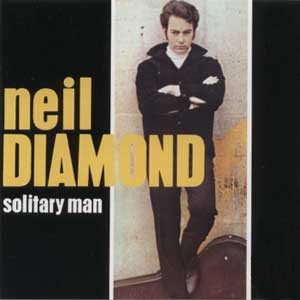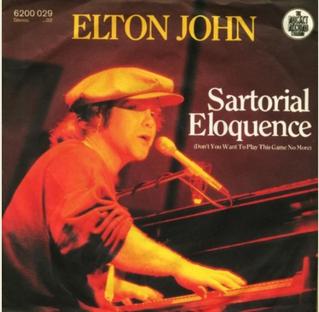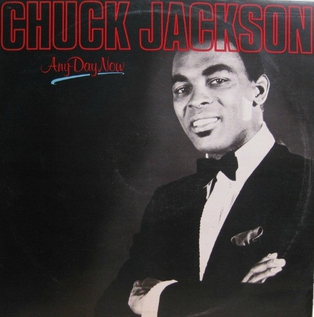Related Research Articles

"Me and Bobby McGee" is a song written by American singer-songwriter Kris Kristofferson and originally performed by Roger Miller. Fred Foster shares the writing credit, as Kristofferson wrote the song based on a suggestion from Foster. A posthumously released version by Janis Joplin topped the Billboard Hot 100 in 1971, making the song the second posthumously released No. 1 single in U.S. chart history after "(Sittin' On) The Dock of the Bay" by Otis Redding. Gordon Lightfoot released a version that reached number 1 on the Canadian country charts in 1970. Jerry Lee Lewis released a version that was number 1 on the country charts in December 1971/January 1972 as the "B" side of "Would You Take Another Chance on Me". Billboard ranked Joplin's version as the No. 11 song for 1971.

"Woodstock" is a song written by Canadian-American singer-songwriter Joni Mitchell. At least four versions of the song were released in 1970. Mitchell's own version was first performed live in 1969 and appeared in April 1970 on her album Ladies of the Canyon and as the B-side to her single "Big Yellow Taxi". A version by Crosby, Stills, Nash & Young appeared on their album Déjà Vu in March 1970 and became a staple of classic rock radio and the best-known version of the song in the United States. A third version, by the British band Matthews Southern Comfort, became the best-known version in the United Kingdom and was the highest charting version of the song in the UK, reaching the top of the Singles Chart in 1970. A fourth version by studio project the Assembled Multitude also became a chart hit.

"Stoned Love" is a 1970 hit single recorded by The Supremes for the Motown label. It was the last Billboard Pop Top Ten hit for the group, peaking at number seven, and their last Billboard number-one R&B hit as well, although the trio continued to score top ten hits in the UK into 1972. In the UK, it was the post-Ross Supremes' biggest hit, reaching number 3 in the singles chart. The single spent six weeks in the UK top ten and five weeks in the US top ten. The BBC ranked "Stoned Love" at number 99 on The Top 100 Digital Motown Chart, which ranks Motown releases solely on their all time UK downloads and streams.

"Baby I Need Your Loving" is a 1964 hit single recorded by the Four Tops for the Motown label. Written and produced by Motown's main production team Holland–Dozier–Holland, the song was the group's first Motown single and their first pop Top 20 hit, making it to number 11 on the US Billboard Hot 100 and number four in Canada in the fall of 1964. It was also their first million-selling hit single.

"The Morning After" is a song written by Al Kasha and Joel Hirschhorn for the 1972 film The Poseidon Adventure, winning Best Original Song at the 45th Academy Awards. Following this success, Maureen McGovern recorded a single version that became a No. 1 hit in the US for two weeks during August 1973, with Gold record sales. Billboard ranked it as the No. 28 song for 1973.

"If" is a song written by American singer-songwriter David Gates in 1971. Originally popularized by his group Bread, "If" charted at No. 4 on the U.S. Billboard Hot 100 when released as a single in 1971 and No. 6 in Canada. It also spent three weeks at No. 1 on the U.S. Easy Listening chart, and one week at the top of the Canadian AC chart.

"Didn't I (Blow Your Mind This Time)" is a song by American soul group the Delfonics, co-written by producer Thom Bell and lead singer William Hart. It was released as a single in 1969 on the Philly Groove record label and appeared on their self-titled third album the following year. The song reached number three on the Billboard R&B chart and number ten on the Billboard Hot 100 in 1970. Overseas, the song peaked at number 22 on the UK Singles Chart in and number 81 in Australia. The Delfonics won a Grammy Award for Best R&B Vocal Performance by a Duo or Group for the song in 1971.

"Mr. Bojangles" is a song written and originally recorded by American country music artist Jerry Jeff Walker for his 1968 album of the same title. It has since been recorded by other artists, including the Nitty Gritty Dirt Band in 1969.

"Love's Theme" is an instrumental piece written by Barry White around 1965. Recorded and released as a single by White's Love Unlimited Orchestra in 1973, it was one of the few instrumental and purely orchestral singles to reach #1 on the Billboard Hot 100 chart in the United States, which it did in early 1974. Billboard ranked it as #3 on the Year-End Hot 100 singles of 1974.

"Go Away Little Girl" is a popular song written by Gerry Goffin and Carole King. It was first recorded by Bobby Vee for Liberty Records on March 28, 1962. The lyrics consist of a young man asking a young attractive woman to stay away from him, so that he will not be tempted to betray his steady girlfriend by kissing her. The song is notable for making the American Top 20 three times: for Steve Lawrence in 1963, for The Happenings in 1966, and for Donny Osmond in 1971. It is also the first song, and one of only nine, to reach US number 1 by two different artists. Also notable in each of the solo versions is the similar double-tracked treatment of the singer's voice.

"If You Could Read My Mind" is a song by Canadian singer-songwriter Gordon Lightfoot. Lightfoot wrote the lyrics while he was reflecting on his own divorce. It reached No. 1 on the Canadian Singles Chart on commercial release in 1970 and charted in several other countries on international release in 1971. In 2023, Hockey Night in Canada used the song for their year end playoff montage commemorating the Vegas Golden Knights' Stanley Cup win, following Lightfoot's passing.

"Don't Pull Your Love" is the debut single by Hamilton, Joe Frank & Reynolds which became a top ten hit single in 1971. The song was written by Brian Potter and Dennis Lambert.

"Solitary Man" is a song written by American musician Neil Diamond, who recorded the song for Bang Records in late January 1966. It has since been covered many times, notably by T. G. Sheppard, Gianni Morandi, Chris Isaak, Johnny Cash and HIM.

"Sartorial Eloquence" is a song by British musician Elton John with lyrics written by Tom Robinson. It is the third track of his 1980 studio album, 21 at 33. In the UK, it was issued as "Sartorial Eloquence", and in the US as "Don't Ya Wanna Play This Game No More?". It reached No. 39 on the Billboard Hot 100 and No. 45 Adult Contemporary, falling just short of the Top 40 in the UK (#44), and making lesser showings in Canada (#57) and Australia (#91).

"One Less Bell to Answer" is a song written by Burt Bacharach and Hal David. Originally written in 1967 for Keely Smith, the song was rediscovered in late 1969 by Bones Howe, the producer for the 5th Dimension, and the song was included on the group's 1970 debut album for Bell Records, Portrait. Lead vocals on the single were sung by Marilyn McCoo.

"Any Day Now" is a popular song written by Burt Bacharach and Bob Hilliard in 1962. It has been recorded by numerous artists over the years, including notable versions by Chuck Jackson in 1962, Alan Price in 1965, Elvis Presley in 1969, Scott Walker in 1973 and Ronnie Milsap in 1982. In the lyrics, the singer predicts the imminent demise of a romantic relationship and describes the sadness this will leave.
"Without Love (There is Nothing)" is a song written by Danny Small and originally recorded by Clyde McPhatter in 1957. McPhatter's version peaked at number six on the R&B Best Seller chart and number nineteen on Billboard Hot 100.

"Also Sprach Zarathustra (2001)" is an instrumental by Brazilian musician Eumir Deodato, from his 1973 album Prelude. It is a heavily jazz-funk styled rendition of the introduction from the Richard Strauss composition Also sprach Zarathustra. The "(2001)" mentioned is a reference to the soundtrack for the film 2001: A Space Odyssey.

"Friends" is a song written by English musician Elton John and songwriter Bernie Taupin, and performed by John. It was John's third U.S. hit, and his second to reach Top 40 after the breakthrough success of "Your Song".

"Puppet Man" is a song written by Neil Sedaka and Howard Greenfield. It was originally recorded by Sedaka on his 1969 Workin' on a Groovy Thing LP. The first hit version was by The Fifth Dimension in 1970. The following year it was also a hit for Tom Jones.
References
- ↑ Billboard Singles, Allmusic.com
- ↑ Whitburn, Joel (2013). Joel Whitburn’s Top Pop Singles, 14th Edition: 1955-2012. Record Research. p. 45.
- ↑ "Listen to the original WFIL-TV 6 Action News theme from 1970". WXPN. 2011-04-28. Retrieved 2022-11-27.
- ↑ "RPM Top 100 Singles - September 6, 1970" (PDF).
- ↑ "RPM Top 100 Singles - November 7, 1970" (PDF).
- ↑ "RPM Top 100 Singles - February 20, 1971" (PDF).
- ↑ "RPM Top 34 MOR - February 6, 1971" (PDF).